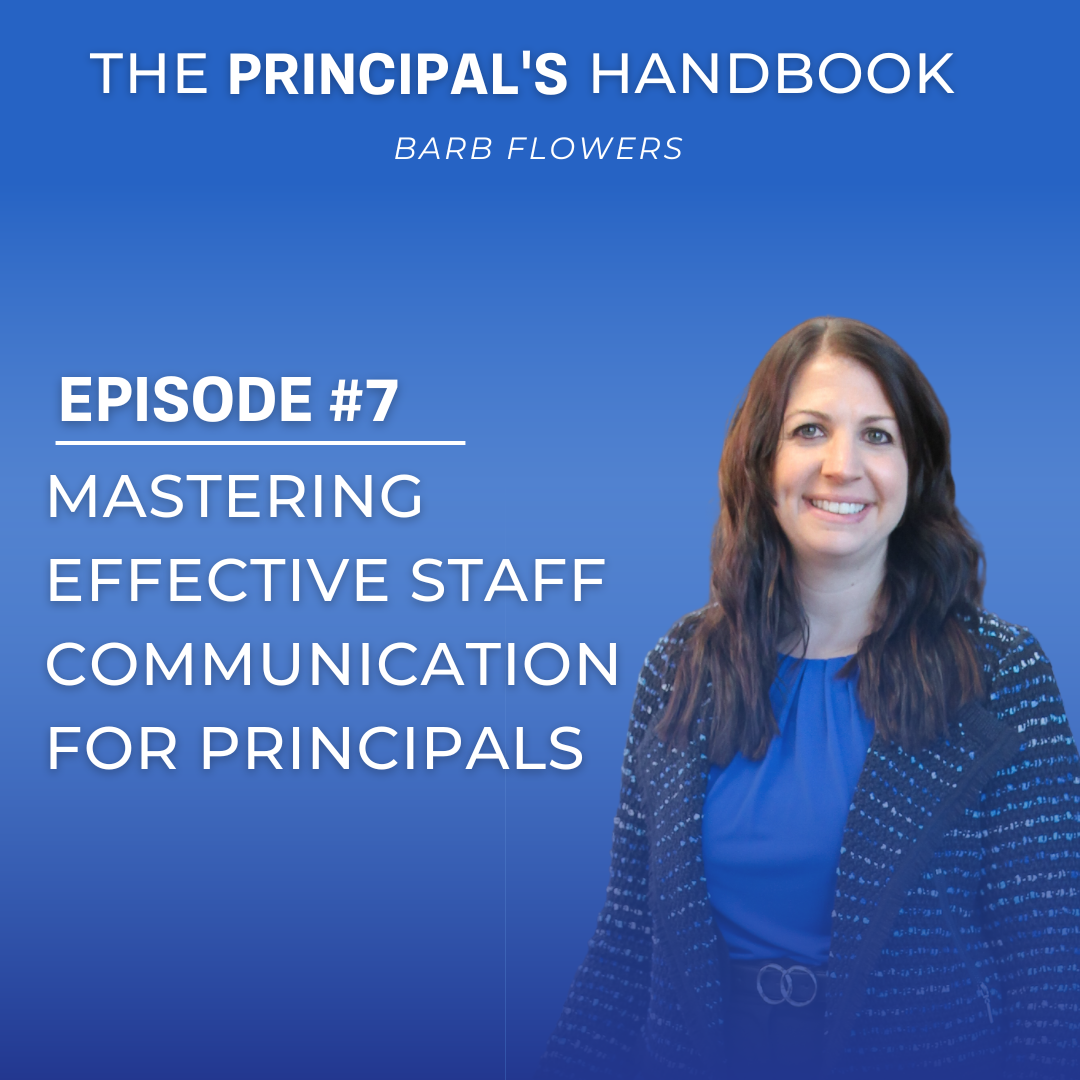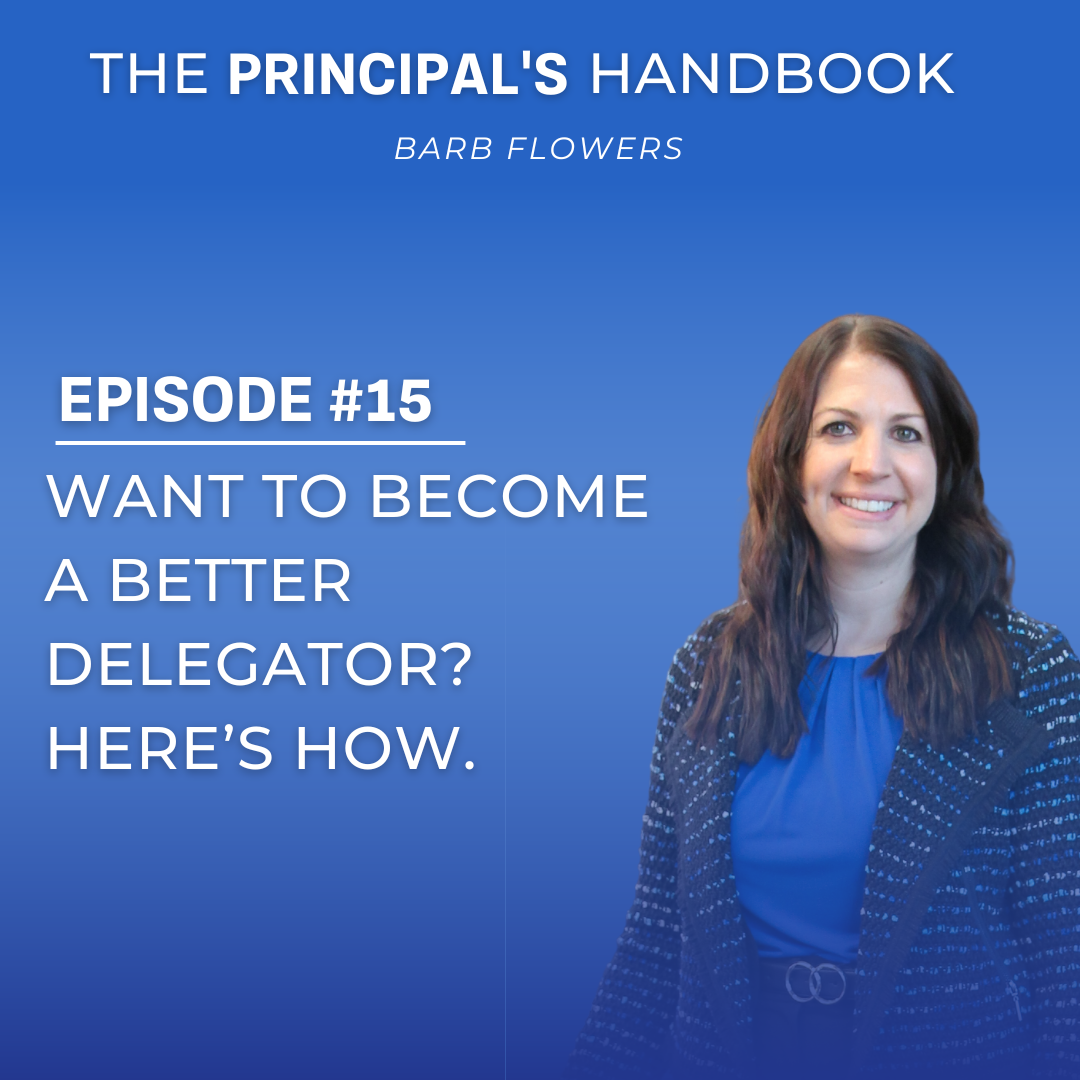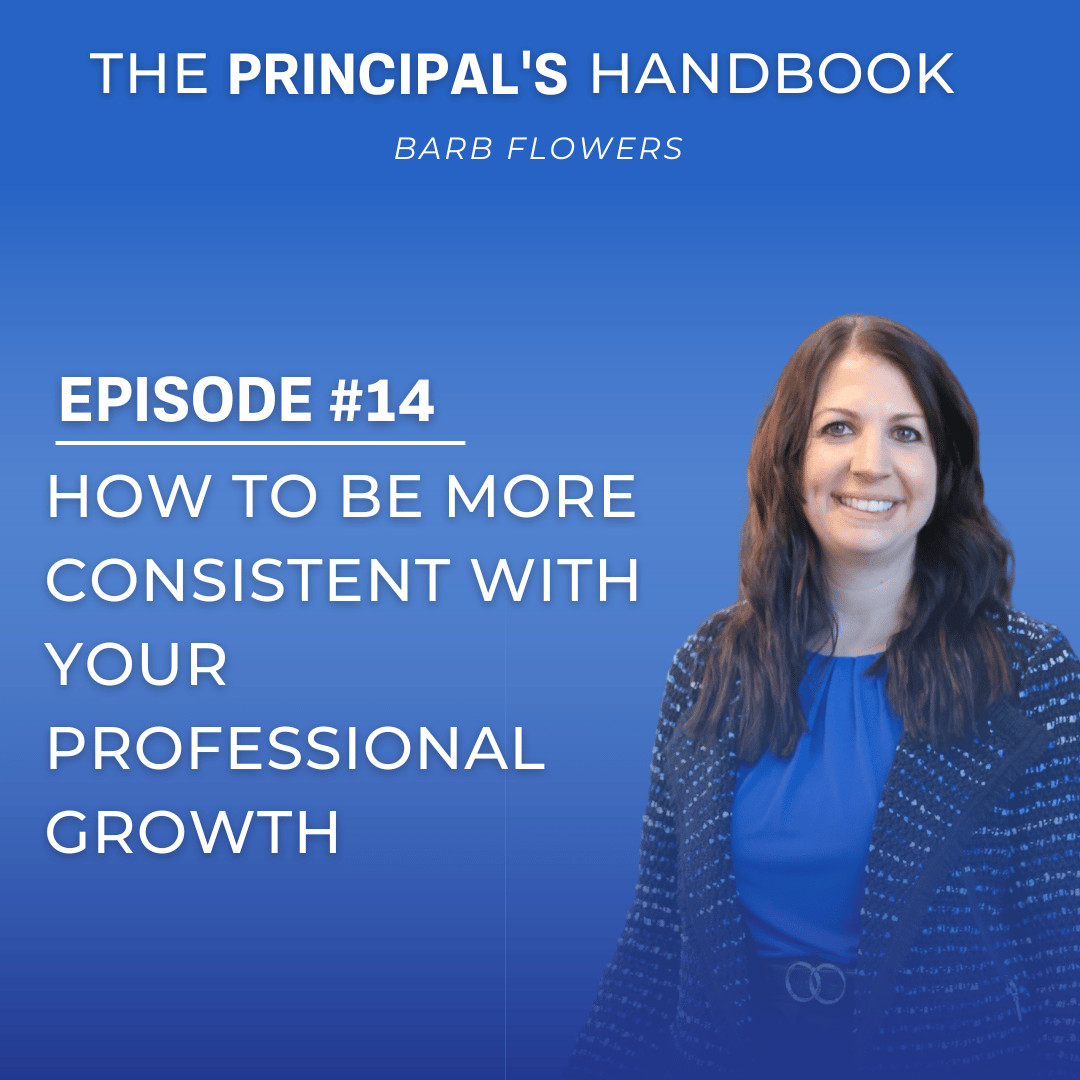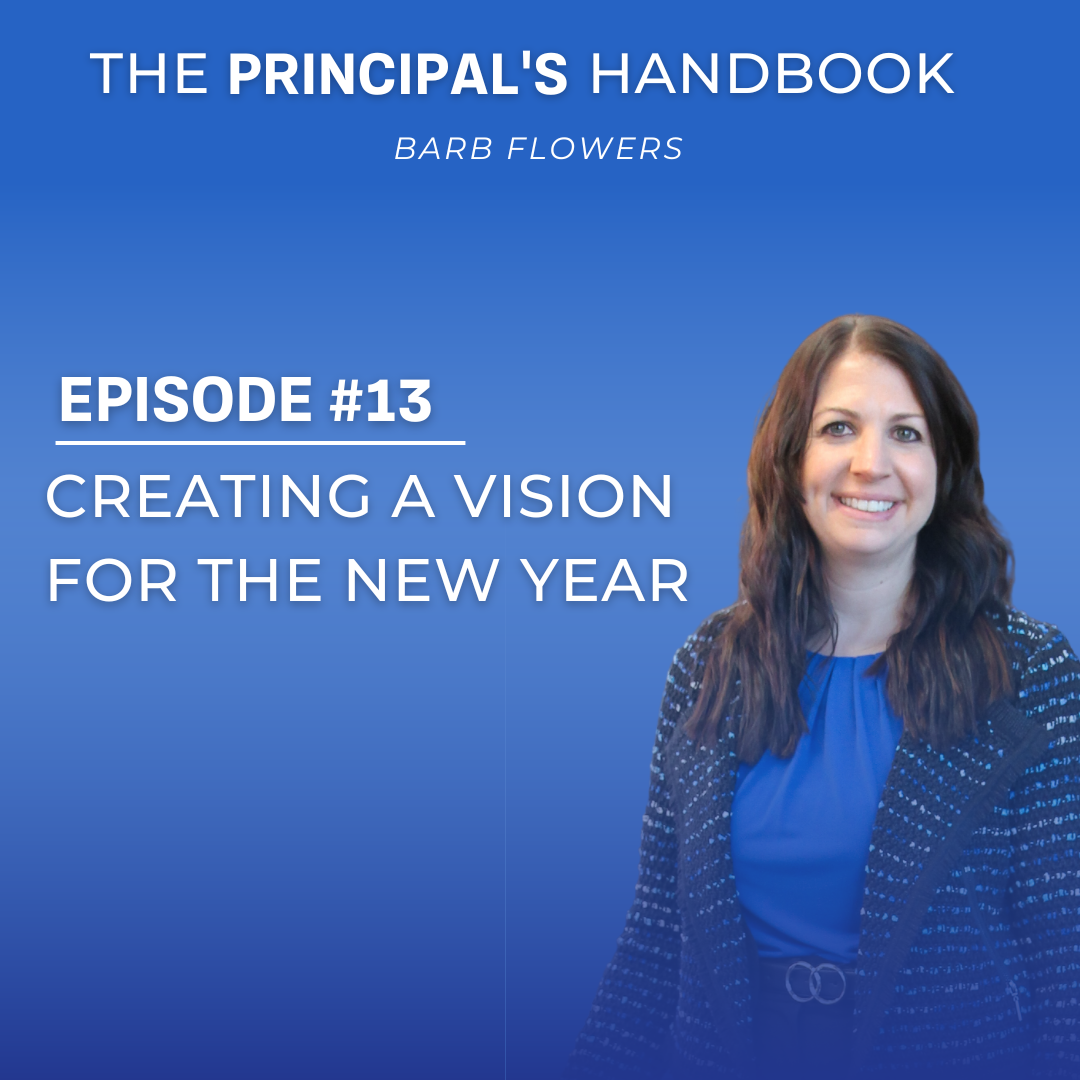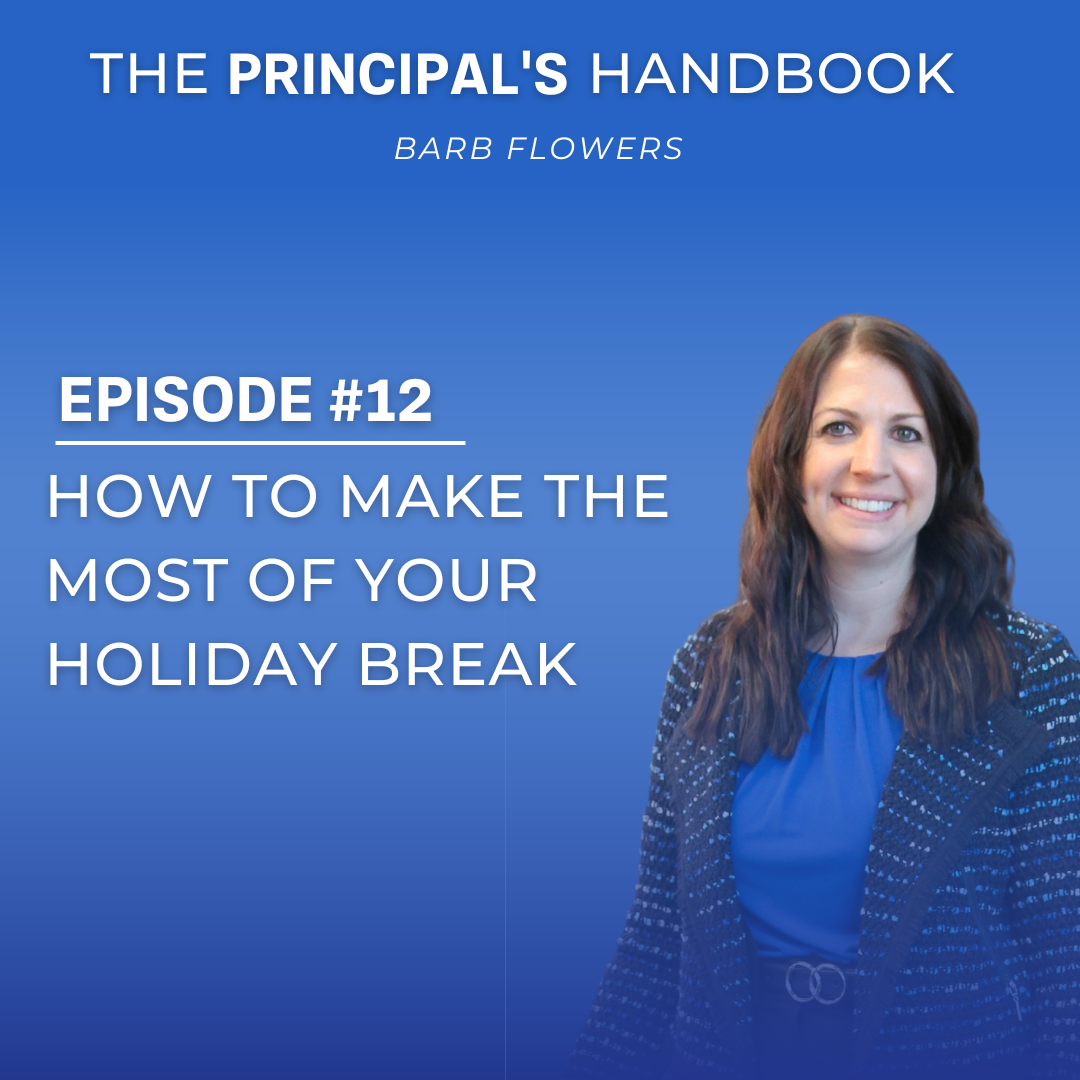Welcome to The Principal’s Handbook, your go-to resource for principals looking to revamp their leadership approach and prioritize self-care. I’m Barb Flowers, a certified life coach and former elementary principal with eight years of experience.
Each week, we dive into strategies for boosting mental resilience, managing time effectively, and nurturing overall wellness. From tackling daily challenges to maintaining a healthy work-life balance, I’m here to help you reignite your passion for the job—and put your wellbeing first.
Hey everyone! Today’s episode is all about effective communication for school principals. Communication lies at the heart of successful leadership, and today we’ll cover why it’s so important and practical ways you can strengthen communication with staff and parents.
To start, I want you to reflect:
-
Do you struggle to be an effective communicator?
-
Do you know your strengths and weaknesses when it comes to communication?
-
Are you someone who gets straight to the point, or do you add a lot of unnecessary fluff?
-
Do you seek feedback about how you communicate?
-
And most importantly: do you genuinely listen—or are you just waiting for your turn to speak?
Being reflective is key. For me, I know I’m naturally very direct. This can be a strength, but it also means I sometimes leave out important details or sound unintentionally harsh, especially in emails. Thankfully, I work with an assistant who is fantastic at adding the “fluff”—the friendliness and details that I tend to skip. Knowing my communication style helps me be more mindful and intentional.
Having people around you with complementary strengths can make a huge difference.
Before we dive into specific strategies, I want to quickly share something that’s been a game changer for me: IXL. As an EdTech solution, it simplifies the tech landscape and actually shows results. Studies across 45 states have found that IXL schools outperform non-IXL schools, and research from Johns Hopkins verifies that IXL meets ESSA Tier 1 standards.
If your goal is to increase achievement for all students, check it out at ixl.com/be.
Why Principals Must Master Communication
-
To lead and inspire: If you don’t clearly communicate your school’s goals, mission, and vision, you won’t be able to inspire your team to grow and improve.
-
To promote a positive culture: The tone of your communication sets the tone for your entire building. Positive communication leads to a positive culture.
-
To achieve excellence: Principals who prioritize communication are better equipped to lead their schools to success.
Strategies for Communicating Effectively
1. Communicate Often—and in Multiple Ways
Repetition is key. Staff are busy. They won’t always remember something just because you said it once.
In my school:
-
We use a shared Google calendar for all events.
-
I send out weekly notes every Friday.
-
My secretary sends daily Remind app messages for next-day events.
Even with three methods, I still occasionally hear, “I didn’t know about that meeting!” So reminders, reminders, reminders.
2. Set Clear Expectations
Clarity helps eliminate confusion. In my experience, teachers just want to know exactly what’s expected. Use staff handbooks, systems like PBIS, and regular communication to spell out expectations clearly.
And if you’ve inherited old “rules” from past principals, make sure you clarify what’s truly expected now.
3. Communicate Consistently
Consistency builds trust.
-
For staff: I send weekly notes every Friday that include upcoming dates and important updates.
-
For parents: I send a building-wide newsletter every Friday using S’more, which makes it easy to include photos, lunch menus, and event flyers.
That way, parents always know when and where to find information.
4. Know Your Audience
Understand the specific needs of your staff.
My teachers prefer very detailed communication. Early on, they would ask lots of clarifying questions, and over time I learned to anticipate the details they needed to know.
Adapt your style based on what your staff responds best to.
5. Be a Good Listener
True listening isn’t about preparing your next comment—it’s about genuinely seeking to understand. Practice empathetic listening to build trust and open dialogue.
Also, notice how often you interrupt. In The Charisma Myth, Olivia Fox Cabane says:
“Good listeners know to never interrupt. Great listeners let others interrupt them.”
That’s a great reminder.
6. Receive Feedback with Openness
It’s easy to get defensive about communication, but feedback highlights blind spots. Listen carefully and use that information to improve.
For example, after feedback from parents about missing Open House information, I realized I needed a separate flyer instead of just burying it in a long letter.
The same goes for staff—keep asking what’s working and what’s not.
7. Stay Calm During Sensitive Conversations
If emotions are running high, it’s better to pause and revisit the conversation later. We can’t communicate effectively from a place of anger or frustration.
Reschedule, take a breath, and come back ready to problem-solve.
8. Talk About Teaching and Learning
Keep instructional conversations at the forefront. Talk with teachers about student data, classroom strategies, and professional growth.
Sharing your own learning models a culture of continuous improvement.
9. Set Communication Boundaries
Respect work-life balance.
Avoid texting, emailing, or calling staff after hours unless it’s an emergency.
Modeling boundaries shows staff it’s okay to disconnect and recharge—and encourages them to do the same.
Final Thoughts
Effective communication isn’t about being perfect—it’s about being reflective, intentional, and always willing to grow.
Thanks for tuning in to this week’s episode of The Principal’s Handbook! If you found today’s conversation helpful, please share it with a fellow principal. And don’t forget to subscribe so you never miss an episode.
I’ll see you next week!


